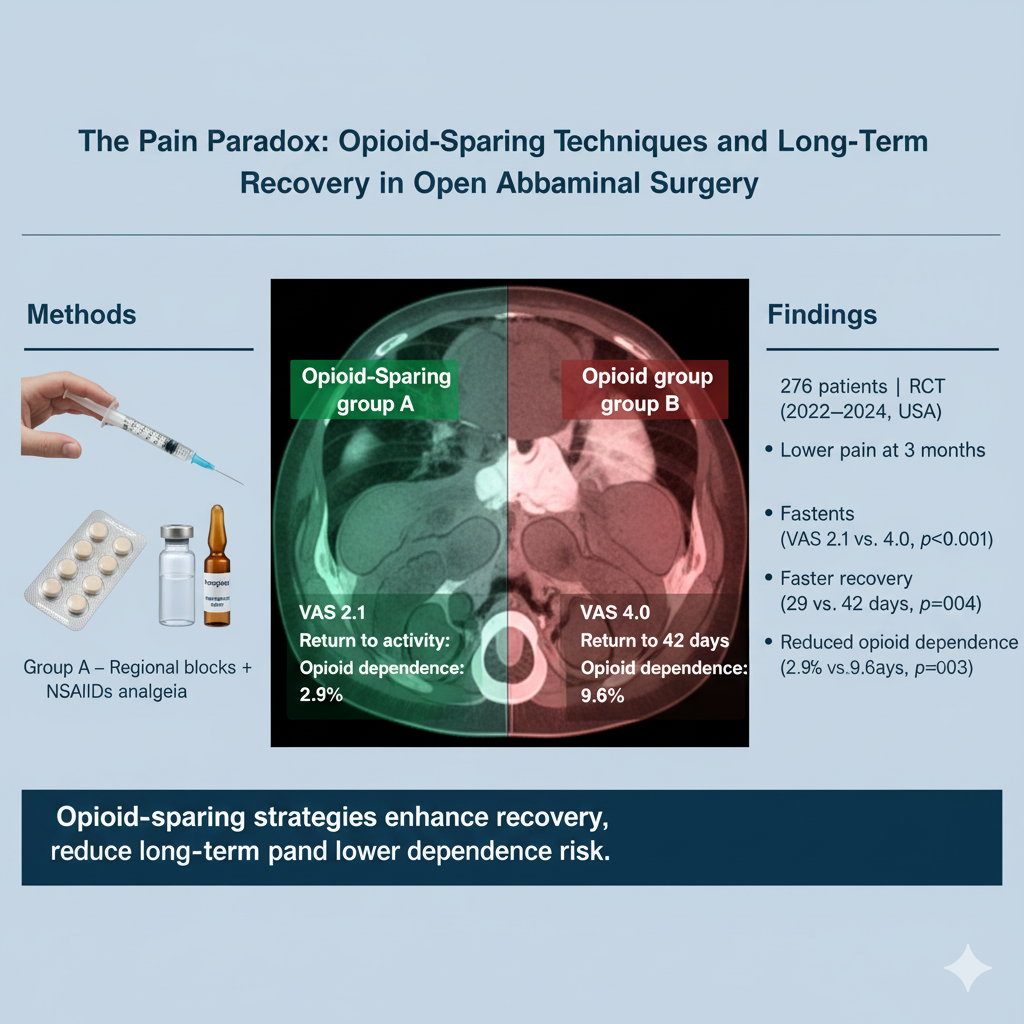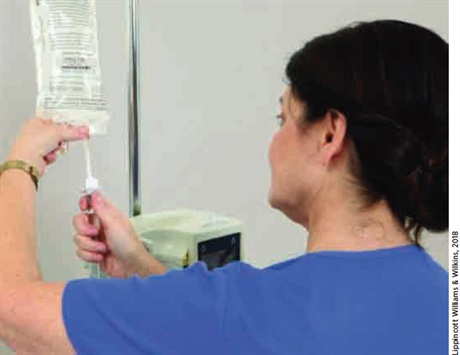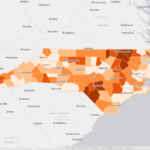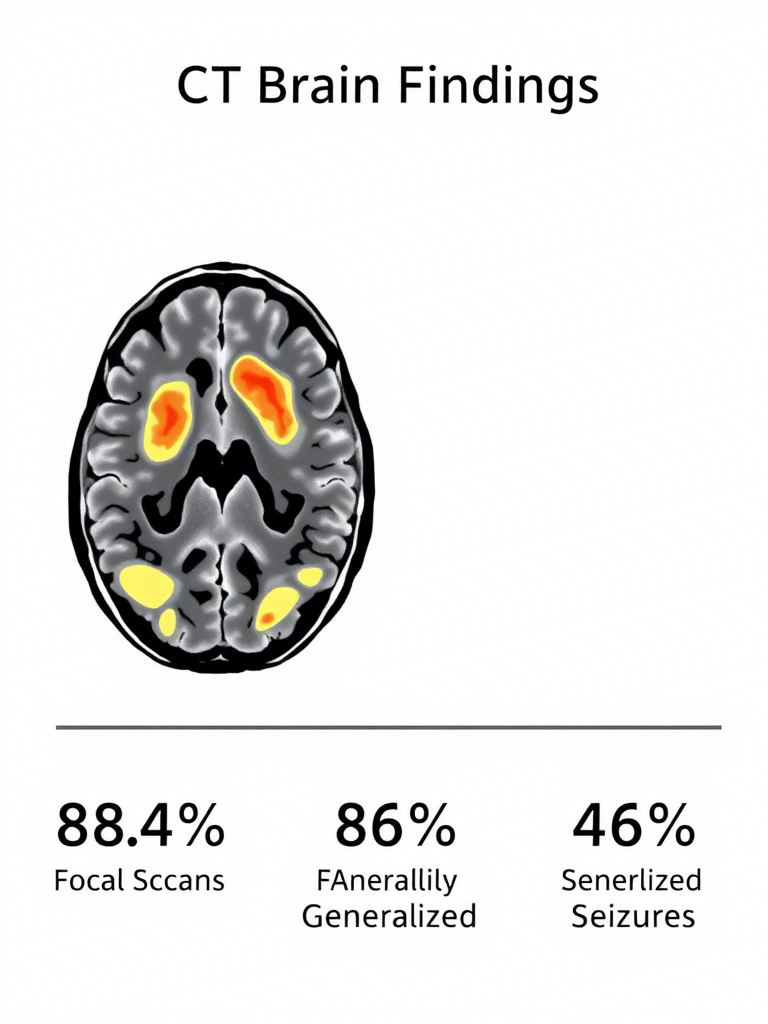The Pain Paradox: Opioid-Sparing Techniques and Long-Term Recovery in Open Abdominal Surgery
Michelle Adams¹, David King², Daniel Bennett³, Liam Collins⁴, Jennifer Gray⁵
Keywords:
opioid-sparing, postoperative pain, abdominal surgery, regional blocks, recoveryAbstract
Abstract:
Background: Opioid-sparing approaches are increasingly used in surgery, but their long-term effects on recovery and pain perception remain unclear. This study evaluates patient outcomes 3 months postoperatively following opioid-sparing vs. standard analgesia.
Methods: A randomized trial of 276 patients undergoing open abdominal surgery in the USA (2022–2024). Group A received regional blocks and NSAID-based regimens; Group B received opioid-based analgesia. Pain scores, return to activity, and opioid dependence at 3 months were analyzed.
Results: Group A reported lower chronic pain scores at 3 months (VAS 2.1 vs. 4.0; p < 0.001) and faster return to activity (median 29 vs. 42 days; p = 0.004). Opioid dependence occurred in 2.9% of Group A vs. 9.6% of Group B (p = 0.03).
Conclusion: Opioid-sparing strategies improve long-term pain and recovery without increasing short-term discomfort. They represent a sustainable, safer postoperative pain paradigm.
Downloads





